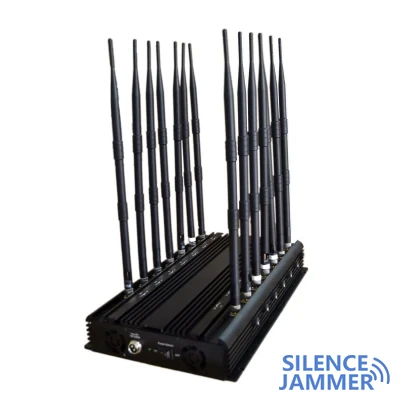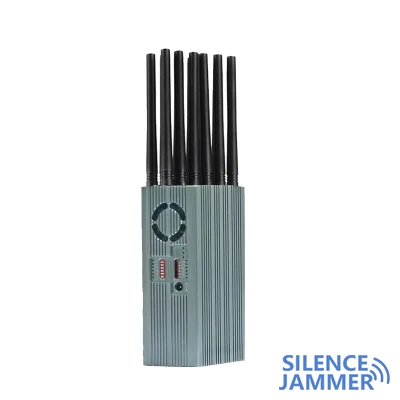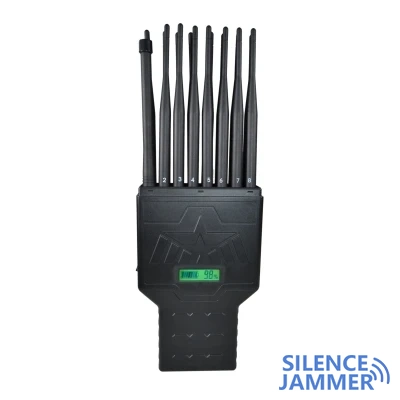The Tihar Jail in Delhi has recently attracted public attention for planning a number of major criminal cases. In order to deal with the frequent illegal communications in prisons, Delhi Chief Minister Arvind Kejriwal recently approved the establishment of a high-level technical committee to study the latest signal jammer technology. The committee will focus on strengthening communication control in prisons, especially blocking mobile signals including 5G to ensure prison safety.
The newly established expert group has clear responsibilities
According to government officials, the 10-member group will be chaired by Sanjay Beniwal, Director of Delhi Prisons. Members include experts from the Indian Defense Research and Development Organization (DRDO), Indian Institute of Technology Madras and Indian Institute of Science Bangalore, as well as senior officials from the Intelligence Bureau (IB) and the Special Protection Group (SPG). The experts are tasked with recommending advanced jamming techniques to block unauthorized communications inside prisons.

The move by the Delhi government comes against the backdrop of the long-standing challenges faced by prison authorities in combating crimes planned by prisoners using smuggled mobile phones. In recent years, there have been a number of high-profile cases of prisoners using mobile phones to carry out external criminal operations. For example, the murder of Punjabi singer Sidhu Moosewala and the Rs 20 billion blackmail case involving Sukesh Chandrasekhar were allegedly planned from inside the heavily guarded Tihar jail. These cases have raised questions about the management and security of Delhi prisons and prompted the government to take swift action to address the issue.
Challenges of signal jamming technology
Prison officials generally support the new initiative but also point out that implementing the latest jamming technology is not an easy task. A senior prison official revealed that although some basic 5G signal jammers have been deployed, they have limited effectiveness in actual operations. "The old 2G mobile phone signals have strong penetration and can often escape the shielding of existing signal blocker jammers. In addition, the thick walls and hidden corners in the prison often form blind spots that signal jammers cannot cover." He said that in order to solve these problems, the newly established technical committee will explore more effective solutions.
The task of the committee is not limited to blocking the existing 2G, 3G and 4G signals, but more importantly, to find effective means to block 5G networks. With the rapid promotion of 5G technology, the problem of illegal communications in prisons has become more complicated. 5G signals have higher frequencies and faster transmission speeds, making it difficult for traditional signal jammers to work. Therefore, the Delhi government hopes to completely solve the hidden dangers of prison communication security through technological upgrades and innovations.
Future technology deployment plan
Government officials said that the committee will focus on the following research areas:
- Evaluate existing mobile networks: determine how to more effectively prevent illegal communications in prisons.
- Technical research and solutions: propose suitable signal shielding solutions based on the special environment of prisons.
- Intercept 5G networks: study how to effectively shield the latest 5G signals.
- Base station transceiver (BTS) deployment recommendations: formulate technical guidelines for installing BTS towers around prisons to form a more powerful signal shielding circle.
"The continuous advancement of technology means that we cannot stand still and must continue to innovate, because criminals will always find ways to circumvent jamming technology," a senior prison official admitted. He also stressed that existing technology can only solve part of the problem, and the development and deployment of new technologies are the key to meeting future challenges.
Government's determination to promote prison communication management
The establishment of a high-level technical committee by the Delhi government this time shows its firm determination to solve the problem of illegal communications in prisons. As the work of the group progresses, the Delhi prison system will usher in more advanced signal shielding technology. This will not only help combat prisoners using mobile phones for illegal activities, but will also greatly improve the overall security management level of prisons.
In the future, the expert group will submit a detailed technical report, including feasible signal jammer technology, effective 5G shielding solutions, and how to strengthen signal shielding around prisons through base station towers. The implementation of this series of measures will bring higher security to Delhi prisons and provide technical references for prisons in other parts of India.





